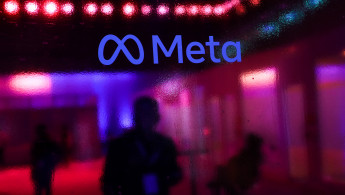Meta ends ban on 'shaheed', but what does the Arabic word actually mean?
Meta Platforms, which manages Facebook, said last week it would finally lift its blanket ban on the Arabic word shaheed ("martyr") after a year-long review by its oversight board found the social media giant's approach was "overbroad".
The company, which runs Facebook and Instagram, has been criticised for years over its handling of content involving the Middle East. A 2021 study, which Meta itself commissioned, found its approach had an "adverse human rights impact" on Palestinians and other Arabic-speaking users of its services.
The oversight board, which is funded by Meta but operates independently, started its review last year because the word, shaheed, accounted for more content removals on its platforms than any other.
So what exactly does the word mean?
Historical and modern usage of the term
The Arabic word shaheed holds significant cultural, religious, and historical meanings, particularly in the Middle East and within Islamic societies.
Islamically, the word refers to someone who had died in a cause for their faith, such as a struggle against the enemies of Islam. According to the Quran and the sayings of the Prophet Muhammad, these individuals would be granted paradise as a reward for their sacrifice.
Historically, the word was used to honour those who had died in battle or as victims of persecution for their faith, including civilians who died in circumstances deemed to be in the service of their faith or community.
In recent times, the word is often used more broadly to include individuals who die during significant acts of service or resistance, even outside of direct combat.
For example, it can applied to people who lose their lives while protecting others, during social or political struggles, or even in acts of significant moral or ethical stance.
Gaza's 'martyrs'
The word "shaheed" has been regularly used to refer to Palestinians who were killed by Israeli attacks, both civilians and fighters.
The word is often invoked in media reports, political speeches, and social media posts to honour those who have died and to highlight their role in the Palestinian resistance.
During Israel's wars on Gaza, the word became a powerful symbol of resistance and defiance by framing Palestinian deaths within the struggle for freedom and justice.
In Israel's current war on the enclave, Palestinians who died were referred to as "shaheeds" in local and regional media not only to honour those killed but also to galvanise public sentiment.
Meta's review of 'shaheed'
Meta's review in March found that its rules on the use of the word "shaheed" had failed to account for the word's variety of meanings and resulted in the removal of content not aimed at praising violent actions.
Meta acknowledged the findings of the review last Tuesday and said its tests showed that removing content when "shaheed" was "paired with otherwise violating content captures the most potentially harmful content without disproportionally impacting the voice".
Israeli pundits described the decision as "antisemetic" over its regular use in referring to Palestinians killed by Israel. The decision to overturn the ban comes almost nine-months into the war on Gaza, which has now cost over 38,000 Palestinian lives.
The oversight board welcomed the change, saying Meta's policy related to the word had led to the censoring of millions of people across its platforms.





 Follow the Middle East's top stories in English at The New Arab on Google News
Follow the Middle East's top stories in English at The New Arab on Google News


